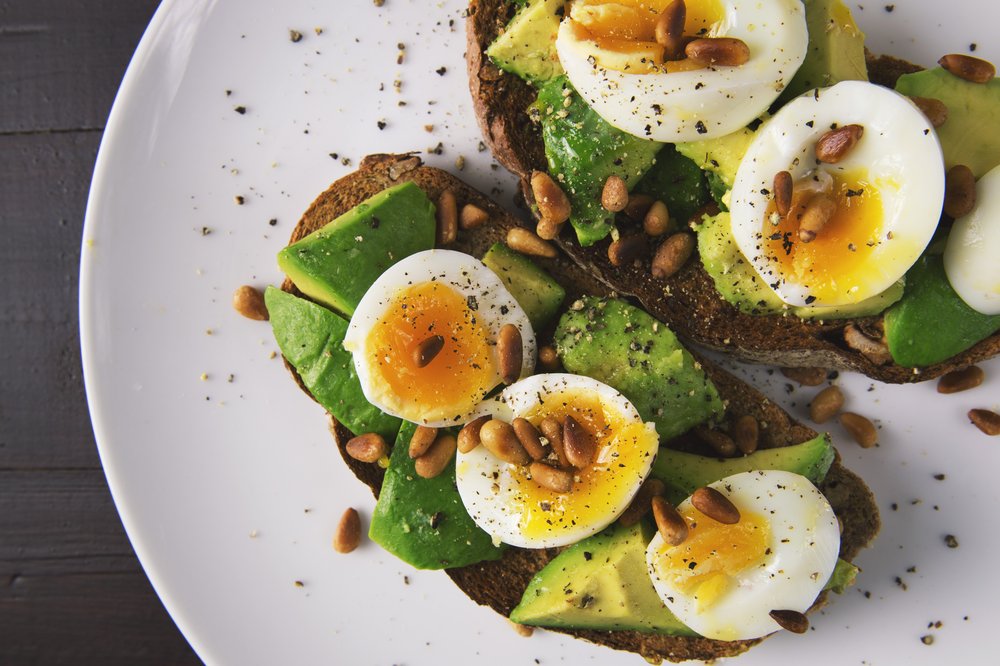Ankylosing spondylitis (AS) is a life-long battle, and what you put in your body plays an important role in help managing your symptoms. A healthy diet is essential to maintain your overall health and looking after what you eat if you have ankylosing spondylitis makes it all the more important.
Ankylosing spondylitis is a chronic inflammatory form of arthritis, which mainly affects the spine. Inflammation occurs in the joints and ligaments along the spine that can result in joint damage and cause joint pain, stiffness and swelling. Managing inflammation is one of the key ways to manage overall symptoms of ankylosing spondylitis.
While there is specific diet people with ankylosing spondylitis should follow, incorporating certain foods and eliminating others, can reduce inflammation and help people cope better with the condition.
How the Food You Eat Relates to Ankylosing Spondylitis
The primary cause of pain or discomfort experienced with ankylosing spondylitis is severe inflammation of the vertebrae and sacroiliac joints. The symptoms of AS appear most commonly during periods of flare-ups. These flare-ups can sometimes occur randomly, but they might also be triggered by certain stimuli.
For some people, one such trigger is food. Different foods affect differently to people and it can have a direct impact on inflammation within the body, either helping to reduce it or causing it to increase. A healthy diet may be instrumental in managing conditions characterized by chronic inflammation, including ankylosing spondylitis. A poor diet may lead to worsened symptoms and additional pain.
Foods to Eat
Here are the foods you should try to include in your daily diet, which promotes bone health and have anti-inflammatory properties.
Omega-3 fatty acids
Foods rich in omega-3 fatty acids are known to help reduce joint inflammation. In a Swedish study, people with ankylosing spondylitis who ate omega-3 rich food or took a higher dose of omega-3 supplements had a significant decrease in their symptoms, compared with those who took a lower dose of omega-3.
Foods that contain omega-3 fatty acids include:
- Fatty fish, such as salmon, sardines, and tuna
- Chia seeds
- Flax seeds
- Soybean, canola, and flaxseed oils
- Walnuts
Whole foods and grains
Whole foods and grains are high in fiber and are not only good for your heart health, but also good for your joints, as well as in reducing inflammation. Incorporate brown rice, corn, quinoa, buckwheat, and oatmeal in your regular diet to better manage your symptoms of ankylosing spondylitis.
Having said that, for some people whole grains can trigger symptoms rather than decrease them. Therefore, it is important keep a track of what causes your flare-ups and triggers.
Foods rich in calcium
Calcium plays an important role in muscle and nerve function. For people with ankylosing spondylitis suffer weaking of the bones, hence eating calcium-rich foods are so important.
The National Institute of Health’s Office of Dietary Supplements (ODS) recommends 1,000 mg of calcium a day for adults and 1,200 mg a day for women over 50 and all adults over 70. Food sources high in calcium include:
- Low-fat dairy such as milk, yogurt, and cheese
- Leafy greens such as kale
- Broccoli
- Canned sardines with bones
- Almonds
- Tofu
Fruits and Vegetables
Fruits and vegetables are loaded with vitamins and minerals, which are required by the body to function properly. Eat lots of fruits and vegetables, especially colourful ones, as they are high in antioxidants. Studies show that antioxidants can help with arthritis symptoms because they protect cells from substances called free radicals, which contribute to inflammation.
Foods rich vitamin D
Your body needs vitamin D to absorb the calcium and is another essential nutrient required by the bones to sustain themselves. Vitamin D also helps regulate immune function and plays a key role in your immune health.
One 2015 review of research reports that higher levels of vitamin D are associated with a lower risk of developing ankylosing spondylitis.
Some good sources of vitamin D are:
- Fatty fish
- Salmon
- Egg yolk
- Cod liver oil
- Fortified foods such as juices, dairy, plant-based milk, and tofu.
Foods to Avoid
Sugary foods
Highly processed foods which are high in sugar have been observed to lead to inflammation in the body. People who consume a lot of sugar have more inflammatory markers such as C-reactive protein in their blood.
People with spondyloarthritis (an umbrella term for inflammatory diseases that impact the spine, including ankylosing spondylitis) who are obese tend to have worse disease symptoms and more mobility and physical ability issues.
Cutting down on sugary foods and beverages can help with your flare-up symptoms. Steer clear of juice, soda, energy drinks, and other sugar-loaded beverages; satisfy your sweet tooth with whole fruits and check labels and ingredients for the foods you buy.
Salt and high-sodium foods
Sodium is a key nutrient, but at the same time, exceeding your sodium recommendation is also of no help. High-sodium foods can contribute to inflammation by producing inflammatory cells after digestion.
Watching your sodium intake is also important for your heart since people with ankylosing spondylitis are also at increased risk for cardiovascular diseases. Cutting back on overtly salty and high-sodium foods is a good way to help manage your symptoms and condition
Starch
A low starch diet called the “London AS Diet” claims to benefit people with ankylosing spondylitis. According to the theory, some types of gut bacteria can trigger ankylosing spondylitis, and starch feeds these bacteria.
This, however, may affect differently to different people, depending on the severity of the condition.
Proponents of the diet recommend limiting or excluding specific foods, including:
- Bread and pastries
- Rice
- Potatoes
- Pasta
Alcohol
People with ankylosing spondylitis should limit their alcohol intake or avoid it altogether. Alcohol negatively affects your gastrointestinal (GI) tract, which acts as a protective barrier and has a lot of immune cell function. Alcohol can impair your GI tract’s ability to absorb nutrients and block certain things that may be harmful, and it can cause inflammation.
Excess intake of alcohol can also affect bone mineral density and increase the chances of osteoporosis. Furthermore, a study published in October 2019 in Arthritis and Research Therapy found that drinking alcohol was significantly linked to worsening of spinal structural damage in axial spondyloarthritis.




